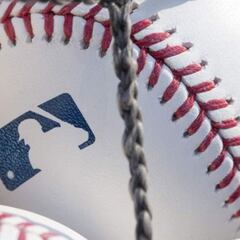Will Barry Bonds get into the MLB Hall of Fame? Why isn't he in already?
As the MLB annual Hall of Fame ballot is being cast, we look at the likelyhood of home run leader Barry Bonds election and what might keep him out


In just over one month’s time, the new Hall of Fame inductees will be announced by the Baseball Writers’ Association of America. Likely class members of 2022 are Curt Schilling and Scott Rolen. Roger Clemens should be in, but his nomination is divisive. None, however, have divided opinion as much as Barry Bonds. Since May 28, 2006 when he hit home run number 715 to pass Babe Ruth, he has occupied the thoughts of nearly all baseball fans, splitting them almost evenly. But the debate has a sense of urgency as Bonds is present on the ballot in his final year of eligibility.
Willie Mays implores voters to vote Barry Bonds into Baseball Hall of Fame. #SFGiants pic.twitter.com/yVofxfDLna
— 95.7 The Game (@957thegame) August 12, 2018
The Hall of Fame process
There are currently two routes into the Hall of Fame. The first, and most direct, is to be elected by the BBWAA. A player qualifies for consideration five years after their retirement by having played at least ten years in the major leagues. They will then pass through a screening committee and make their way onto a ballot. They will then be voted on by BBWAA members with more than ten years membership and actively covering baseball. Each writer can vote for up to ten players and any player named on 75% of the ballots is elected. Any player who receives less than 5% is removed from future ballots. Players who receive more than 5% but less than 75% appear on future ballots for a maximum of ten years.
Any player who fails to get in during their ten year eligibility may still be selected by the second route to Cooperstown immortality. This is to be selected by the Veterans Committee, which consists of four subcommittees looking at specific eras. Currently these are Today’s Game (1988–present), Modern Baseball (1970–1987), Golden Days (1950–1969), and Early Baseball (1871–1949). The Veterans Committee is made up of living members of the Hall of Fame and has often found itself under fire for being too stingy with the laurels. Mike Schmidt, in response to this reticence said, "The same thing happens every year. The current members want to preserve the prestige as much as possible, and are unwilling to open the doors."
Barry Bonds belongs in the Hall of Fame! 🐐 pic.twitter.com/o3yw2PSQrK
— LightSkinChris 💯 (@YoutubeLSC) December 6, 2021
Performance Enhancing Drugs
The issue that divides fans and writers alike is the suspected use of steroids by Bonds. On the side of induction are those who argue that in an era where everyone was using PEDs, Bonds would have gained no advantage through their use. This argument may have some sympathy if we were considering his win/loss record or even a statistic like ERA which pits one player directly against his opponent. But where it falls down is in the specific record that Bonds holds, where he is in competition not agains other players but against the fixed size of a ballpark. The ability to hit the ball a long way is most definitely connected to strength and bat speed.
One glaring bit of hypocrisy is in the treatment of other players of the era by the public and by the league. Power hitter Mark McGwire admitted using performance-enhancing substances and spent nearly ten post-playing years in MLB as the hitting coach for the Cardinals, Dodgers, Diamondbacks and Padres. Alex Rodriguez admitted using PEDs and after a public catharsis where he complained that it cost him $40 million and a spot in the Hall of Fame, Yankees fans have rallied behind him. Jason Giambi found that, after opening up about his use of performance-enhancing substances, he finally achieved the support that had been denied him for so many years by the baseball community, giving his career a second wind. Barry Bonds has admitted nothing. And those in power have shown themselves all too prepared to sacrifice the unrepentant.
Barry bonds belongs in the HOF. Bob Gibson basically proving it right here. https://t.co/cNZ9R2M0wQ
— Josh K. (@Therealjpk429) December 6, 2021
The lead prosecutor in Bonds’ 2011 perjury and obstruction of justice trial in San Francisco, Matt Parrella said of Bonds’ alleged drug use,“The evidence is incontrovertible. It’s scientifically certain, and corroborated by the surrounding facts and circumstances.” He continued to say that “contrary to Bonds’ defense narrative, his use of PEDs was more than rubbing on ‘The Cream’ and taking a few drops of ‘The Clear’ under his tongue. The BALCO and MLB testing records reflected Bonds’ use of multiple doping substances, from 2001 through 2006, including injectable anabolic steroids, injectable human growth hormone, post cycle therapy drugs and amphetamines.”
That timeline is critical to the narrative when you look at the arc of Barry Bonds’ home run statistics. In the 14 years prior to 2001, he had hit a total of 484 home runs. That year he hit his record-setting 73. That is a number that was inconceivable before Bonds, inconceivable now, and inconceivable when it happened. Another way to say it is that he hit in one season 15% of the total number of home runs that he had hit over his entire career. And when you take those five years together, they account for 240 home runs. Those on the non-induction side of the argument say that there is no doubt that without the drugs, there is no way that Bonds beats Hank Aaron’s record. He was a solid hitter, perhaps worthy of Hall of Fame consideration anyway, before the PEDs distorted the record beyond believability.
Barry Bonds from 2001-2004 (4 straight MVPs):
— Codify (@CodifyBaseball) December 6, 2021
.349 batting average
.559 on-base percentage
.809 slugging percentage
486 runs, 438 RBIs
209 homers, 8 triples, 112 doubles, 244 singles
755 walks (284 intentional), 239 strikeouts
Video game stats. 🕹️⚾️ pic.twitter.com/XRB6AJxbQg
The problem with considering the numbers as the sole criteria for worthiness is how to winnow through them to find the amount of “tainted” hits. The Duckworth Lewis method, a formula for determining a winner in a rain-shortened cricket test, is so arcane and convoluted that it is a regular feature in PhD theses, yet even that infamous brain-twister would wither at the prospect of working out “valid” Barry Bonds home runs.
Precedence set
On the face of it, the all-time home run leader being in the Hall of Fame seems to be a no-brainer. But in the world of baseball, stranger things have been known to happen. The all-time base hit king Pete Rose is not in the Hall of Fame, nor will he ever be. Arguably the most talented of the early-era players, Shoeless Joe Jackson, who was swept up in the 1919 Black Sox scandal and handed a lifetime ban for allegedly throwing the World Series, despite the fact that all of the players who were involved insisted that Joe was not, and the fact that his play was clearly excellent earning him the series MVP, is also notable by his absence from Cooperstown.
Related stories
Baseball cares not a jot for who “deserves” to be in the Hall of Fame, inducting those players who are deemed worthy not so much by their play but by their selection’s ability to be justified. Never mind how great you were on the field, if there is a whiff of scandal about you, then no organization in the world is as brutal as Major League Baseball.
Barry Bonds absolutely Belongs in the Hall as well as Pete Rose. https://t.co/BJbPZkEuJF
— CJ Burgos (@2burgos) December 7, 2021
No matter which side of the debate you come down on, it is unlikely to be resolved any time soon. If he is admitted then there will be a visceral reaction by a large portion of the public that the Hall of Fame has been sullied by his inclusion. If, on the other hand, he is omitted, then the question of his inclusion is simply punted to the committee and will occupy an inordinate amount of attention for years, or possibly decades, to come. Baseball will very likely prefer this option as they can argue that they are not saying “no”, just “not yet”.

